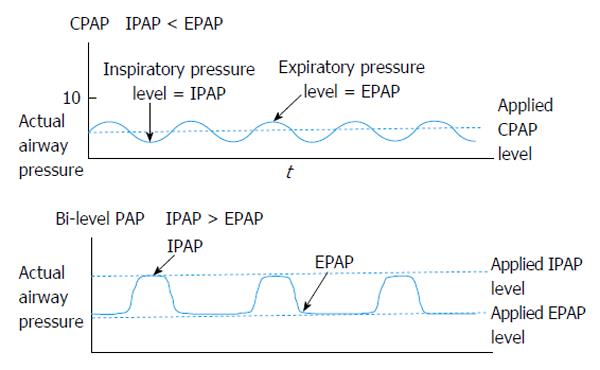Continuous positive airway pressure cpap devices market
Table of Contents
Table of Contents
Do you often feel tired after a full night’s sleep? Do you snore loudly or wake up gasping for air? If so, you may have sleep apnea, a common disorder that causes interruptions in breathing during sleep. One effective treatment for sleep apnea is Continuous Positive Airway Pressure (CPAP) therapy. In this article, we will dive into CPAP therapy and sleep study results to help you better understand this treatment option.
Sleep Apnea and CPAP Therapy
Sleep apnea is a sleep disorder that can lead to a range of health problems, such as high blood pressure, heart disease, and stroke, if left untreated. CPAP therapy is a common treatment option for sleep apnea. It works by delivering a steady stream of air pressure through a mask, keeping your airways open and allowing you to breathe normally during sleep.
While CPAP therapy can be highly effective in treating sleep apnea, it can also come with its own set of challenges. Some patients struggle with finding a comfortable mask or adjusting to the sensation of forced air. Others experience dry mouth or nasal congestion.
How Sleep Study Results Help Determine CPAP Therapy
To determine whether CPAP therapy is the right treatment option for you, your doctor may recommend a sleep study. A sleep study is a test that monitors your sleep patterns, breathing, and heart rate throughout the night. It can help identify the severity of your sleep apnea and pinpoint the best treatment options.
If your sleep study results indicate that you have moderate to severe sleep apnea, your doctor may recommend CPAP therapy. They will work with you to find a mask that fits comfortably and walk you through how to use the machine. With consistent use, CPAP therapy can significantly improve your sleep quality and overall health.
My Experience with CPAP Therapy and Sleep Study Results
As someone who has struggled with sleep apnea for several years, I was hesitant to try CPAP therapy at first. However, after undergoing a sleep study and seeing the results, I knew that it was the best option for me.
Getting used to sleeping with a mask and the sensation of forced air took some time, but with the help of my doctor and some patience, I was able to adjust. Since starting CPAP therapy, I’ve noticed a significant improvement in my sleep quality and energy levels. Plus, knowing that I’m taking care of my health by treating my sleep apnea gives me peace of mind.
The Importance of Consistent Use
One of the most important aspects of CPAP therapy is consistent use. While it can be tempting to skip a night or two, doing so can significantly impact your sleep quality and health. It’s important to make CPAP therapy a regular part of your sleep routine and address any challenges or concerns with your doctor.
The Impact of CPAP Therapy on Overall Health
CPAP therapy can have a significant impact on overall health, particularly for those with moderate to severe sleep apnea. Proper treatment can help reduce the risk of serious health problems and improve quality of life. It’s important to work closely with your doctor to monitor the effectiveness of CPAP therapy and make any necessary adjustments.
Tips for Successful CPAP Therapy
Here are a few tips to help make CPAP therapy a success:
- Be patient with yourself as you adjust to the treatment
- Keep your equipment clean and well-maintained
- Try different mask styles until you find one that fits comfortably
- Use your CPAP machine every night, even when traveling
Question and Answer
Q: What are the side effects of CPAP therapy?
A: While CPAP therapy is generally safe, it can come with side effects such as dry mouth, nasal congestion, and skin irritation. However, these side effects can often be managed with proper equipment adjustment and regular cleaning.
Q: How long does it take to see results from CPAP therapy?
A: Many patients experience improved sleep quality and energy levels within the first few days or weeks of starting CPAP therapy. However, it may take longer to see significant improvements in other health conditions related to sleep apnea.
Q: Can CPAP therapy cure sleep apnea?
A: While CPAP therapy is highly effective in treating sleep apnea, it is not a cure. However, with consistent use, it can significantly improve sleep quality and reduce the risk of serious health problems.
Q: Are there any alternatives to CPAP therapy?
A: Yes, there are alternative treatments for sleep apnea, such as oral appliances or surgery. However, CPAP therapy is often the first-line treatment for moderate to severe sleep apnea, as it is highly effective and non-invasive.
Conclusion of Continuous Positive Airway Pressure Therapy and Sleep Study Results
If you’re struggling with sleep apnea, CPAP therapy may be an effective treatment option. By working closely with your doctor and making consistent use of your CPAP machine, you can significantly improve your sleep quality and overall health. Don’t hesitate to discuss CPAP therapy and sleep study results with your doctor to determine if it’s right for you.
Gallery
Mechanism Of Action Of Continuous Positive Airway Pressure Therapy IV

Photo Credit by: bing.com / airway pressure positive continuous therapy iv
Continuous Positive Airway Pressure Therapy | Nursing Information

Photo Credit by: bing.com / pressure positive airway continuous education health nursing information therapy choose board
What Is Continuous Positive Airway Pressure Therapy? | GenesisCare

Photo Credit by: bing.com / continuous airway positive pressure
Continuous Positive Airway Pressure | Treating Sleep Apnea - YouTube

Photo Credit by: bing.com / airway positive pressure continuous
Continuous Positive Airway Pressure (CPAP) Devices Market

Photo Credit by: bing.com / pressure positive airway continuous cpap devices types market machine breathing bipap different insights premium press release


